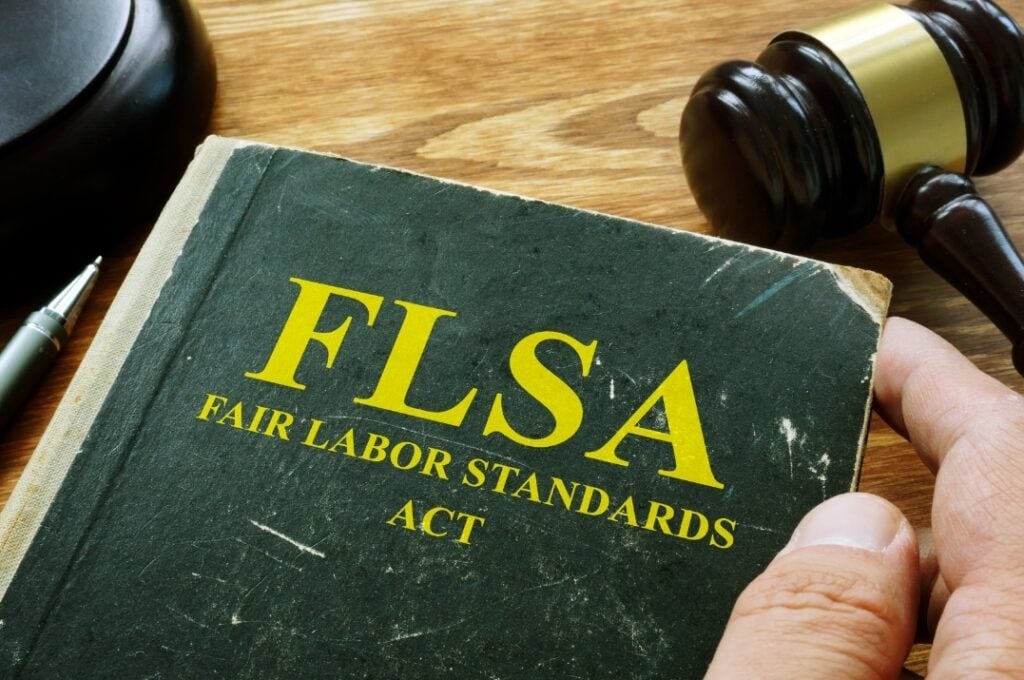Fair Labor Standards Act Lawyers








First enacted in 1938, the Fair Labor Standards Act (FLSA) establishes a number of minimum federal standards that most businesses in Ohio must adhere to. If a company violates these regulations, their actions typically constitute wage theft and could serve as grounds for any impacted worker to file a lawsuit. However, it can be difficult to prove an FLSA violation, especially if you try to do so without help from a competent wage and hour attorney.

Protections Under the Fair Labor Standards Act
The FLSA is responsible for workplace practices that many workers today take for granted, such as the 40-hour workweek and restrictions on child labor. However, the two FLSA regulations most commonly violated by employers are those setting a minimum hourly wage and establishing requirements for overtime pay.
Minimum Wage Law
Current federal law sets the minimum hourly wage at $7.25 for non-tipped workers and $2.13 for tipped workers. However, any state law that sets a higher minimum wage supersedes the federal law, meaning the minimum wages for workers in Ohio are $8.70 per hour, or $4.35 per hour with tips, as of 2020. If a worker’s tips plus minimum wage are not enough to equal the minimum hourly wage for non-tipped workers, their employer must make up the difference.
Hours Worked
Anyone covered under the FLSA who works for more than 40 hours in a single workweek must be paid time-and-a-half for every extra hour worked, meaning they must receive one and a half times their normal hourly wage. There are several types of employees who are exempt from this requirement but employers sometimes misclassify employees as exempt when their job duties do not merit an exemption.
Who Does the FLSA Apply To?
The regulations set out in the FLSA only apply to companies that bring in over $500,000 in revenue per year or engage in “interstate commerce.” However, federal courts have been generous when defining what qualifies as “interstate commerce,” meaning only a few small businesses and family farms are considered exempt from the FLSA.
There are a number of people who are not owed overtime pay. Among them are:
- Executives
- Administration
- Performers, or other “highly specialized” workers
- Outside salespeople
- Certain types of computer or engineering workers
- Independent contractors
Unfortunately, it is common for employers to erroneously classify workers as contractors when they actually meet the FLSA criteria to be considered employees. Anyone who suspects they have been misclassified at work or denied any other FLSA rights should contact a local lawyer as soon as possible.
Common FLSA Violations
One of the most common ways employers violate the FLSA is by misclassifying employees as independent contractors. Since independent contractors are not protected by the FLSA, employers sometimes treat workers who should be considered employees, based on their working conditions and expectations, as independent entities who are not owed a minimum wage, overtime pay, or other protections.
Many employers also violate FLSA regulations by participating in what is known as wage theft. This means employers failed to properly compensate employees for overtime hours worked or refused to make up the difference in tipped employees’ incomes to ensure they received at least minimum wage after tips. A qualified FLSA lawyer could help an employee who was affected by these tactics seek restitution for denied back pay, as well as for certain other damages.
Other Wage and Hour Regulations in Ohio
Ohio has its own set of laws in a constitutional amendment that protects employees’ minimum wage and overtime rights. In particular, the Ohio Constitutional Amendment that protects employees’ minimum wage rights is a little bit more favorable for employees than the Fair Labor Standards Act.
There are many ways that an employer can violate minimum wage laws. If there is a minimum wage violation, federal law allows the recovery of twice the amount that the employee was underpaid. In contrast, the Ohio Constitution allows recovery of three times that amount.
Contact an Ohio Fair Labor Standards Act Attorney
The FLSA protects the rights of many workers. However, employers may violate these rights in some situations. If you believe that your employer violated your right to overtime or minimum wage, speak with one of our Fair Labor Standards Act lawyers.

